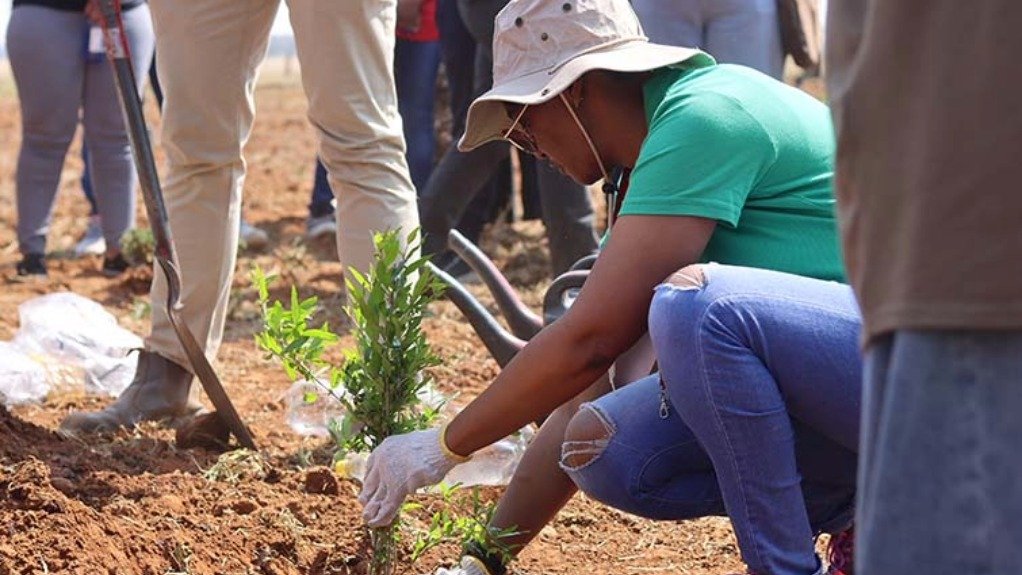The University of the Free State (UFS) has announced a five-year initiative called Greener SA through which 400 000 trees will be planted across South Africa.
The project brings together efforts by government, global empowerment organisation Mastercard Foundation and Regional Universities Forum for Capacity Building in Agriculture (Ruforum), which is based in Uganda.
Ruforum is a consortium of 163 universities operating within 40 countries in Africa.
UFS marked the launch of the five-year initiative with the planting of the first 100 trees at the Paradys Experimental Farm, in Bloemfontein, which was sponsored by food and restaurant services company Empact Group.
During the occasion, UFS Centre for Sustainable Agriculture director Professor Jan-Willem Swanepoel mentioned that UFS was one of 12 African universities that had access to a $100-million in funding for agricultural transformation. “This project is about sustainability, inclusivity and building value chains that empower farmers and entrepreneurs,” he added.
For Free State Agriculture and Rural Development MEC Elzabe Rockman the initiative spoke to environmental preservation, especially as climate change impacts increased, as well as the creation of jobs in agriculture.
Empact Group representative Helena Prinsloo said the tree planting was an investment in legacy. “We believe that doing right by our community and our planet is not just a responsibility, but a value that defines who we are and how we lead.”
As a guest speaker at the initiative’s launch, Stellenbosch University's Professor Ben du Toit explained that agroforestry systems could simultaneously provide timber, food, biodiversity and resilience. “Agroforestry is not planning trees over here and grazing over there – it is about integration, so that benefits reinforce each other.”
Paradys farm manager Johan Barnard pointed out that shaded tree pockets improved grazing fields and protected water resources, while fruit trees would contribute to student nutrition and new food value chains.
“We are capturing value chains and taking it to the next level so that our students have research opportunities and the farm delivers real outputs,” he added. ![]()






